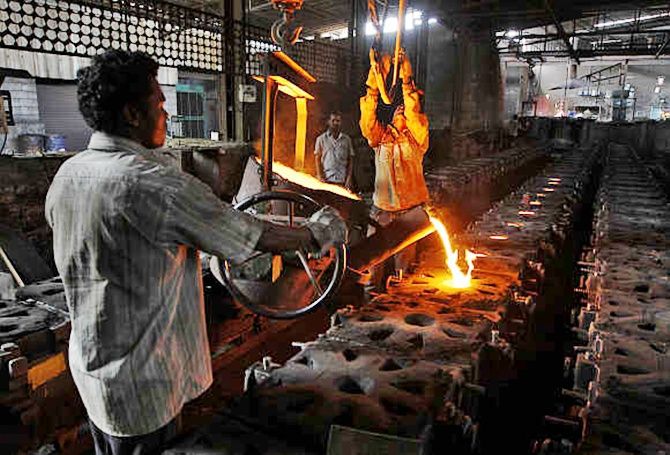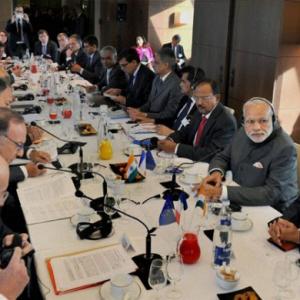If India has made it its mission to give manufacturing a new lease of life, companies that 'Make in India' must do so with the advanced practices and technology tools, says Sunil Mathur.

The government of India has taken several initiatives for growth of the manufacturing sector in the country, the most notable being its 'Make in India' programme.
Under 'Make in India,' the country is being projected as one of the most attractive destinations in the world to set up manufacturing.
It is reported that the government has an ambitious plan to locally manufacture as many as 181 products India currently imports.
A brief look at the existing state of manufacturing in India reveals that although going steady, the sector has not moved much and that there is enormous untapped potential.
According to a World Bank report, manufacturing in India accounts for about 16 per cent of GDP, a level that has remained more or less unchanged over the past two decades.
This is relatively low when compared to the 20 per cent plus share in countries like Brazil, China, Indonesia, Korea and Malaysia (even after taking into account differences in per capita incomes).
However, if things are done right, initiatives like these could turn the wheel for manufacturing in India.
According to a report by consulting firm McKinsey & Company, India's manufacturing sector could touch $1 trillion by 2025. By that time, the sector could potentially account for 25-30 per cent of the country's GDP and create as many as 90 million jobs.
For this potential to materialise, it is essential for India and companies manufacturing in India - whether domestic or multinational - to do the right things to maximise their competence.
Among the key factors for success will be how processes are reengineered and how technology is used to improve efficiency and quality, enhance productivity, reduce waste, lower energy consumption, and what have you.
Improving processes and quality
One of the important things manufacturing companies can do is to invest in methodologies or tools such as lean manufacturing, six sigma, total quality management, etc, to improve their manufacturing processes and achieve world-class quality.
While a few Indian manufacturers have achieved global recognition for quality, if India is to scale up its manufacturing to the next level of collective competence, a lot more companies will need to join the quality movement.
The key success factors for manufacturing industries are efficiency and productivity. Engineering plays a central role in this, especially as it relates to complex machinery and plants across various manufacturing facilities.
That's why a high level of efficiency is a must at the engineering stage itself in order to make production faster, more flexible and more intelligent.
A well-integrated industrial automation system ensures efficient interoperability of all automation components.
Globally, the trend is towards adopting an open system architecture that covers the entire production process and is based on the consistent presence of shared characteristics: consistent data management, global standards, and uniform hardware and software interfaces.
Merging the virtual and real worlds
Today, before setting off the chain of physical operations for making anything, it is possible to simulate, model and test it in the virtual sphere.
For example, the world's top car manufacturers now build new automobile models on their computers, test them thoroughly through software and make multiple course corrections before a single component is ordered to be made physically.
And as the real-virtual integration becomes a part of the organisation's DNA, suppliers and customers can be brought in sync with the design process to make actual rollout faster and more likely to succeed in the market.
Technologies such as these are changing the status quo in manufacturing. If India has made it its mission to give manufacturing a new lease of life, companies that 'Make in India' must do so with the advanced practices and technology tools.
Sunil Mathur is MD & CEO, Siemens.










